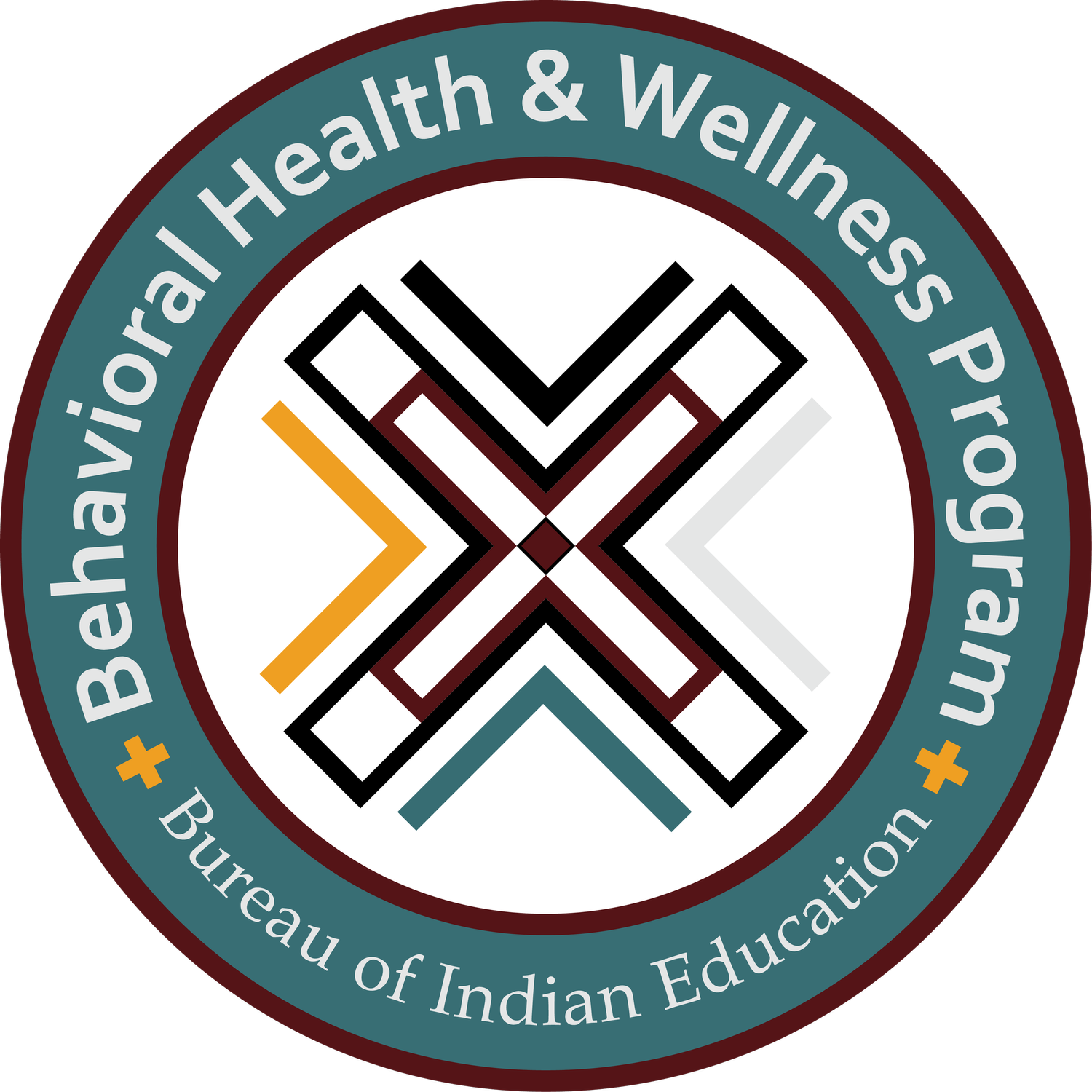
Training and Technical Assistance
What is TTA?
BIE BHWP provides various types of TTA. BIE BHWP hosts on-site and virtual events to support behavioral health and well-being, which helps promote suicide prevention and resiliency. Most staff members who lead TTA are from Tribal communities, many with master’s degrees in education or social work.
How to Request TTA?
Please email your request detailing your training needs.

BIE BHWP TTA Services
-
MHFA training is an evidence-based, trauma-informed training designed to teach participants how to assist those who are experiencing a mental health or substance misuse crisis. Participants learn about risk factors, warning signs for mental health issues, addiction concerns, strategies to help someone in both crisis and non-crisis situations, and where to find local resources. All BHWP trainers are certified by the National Council for Mental Wellbeing. Upon successfully completing all training coursework and post-assessments, participants receive a certificate from the National Council for Mental Well-being.
BIE BHWP offers the following:
Mental Health First Aid for Higher Education (on-site only)
Teen Mental Health First Aid (on-site only)
Youth Mental Health First Aid (virtual or on-site)
YMHFA for Tribal Communities and Indigenous Peoples (on-site only)
-
When it comes to classroom management, one of the best ways to help students is helping them learn how to manage and regulate themselves. Positive Classroom Management focuses on ways to encourage students to behave in appropriate and productive ways. BHWP infuses Indigenous culture, beliefs, and practices local to the tribe or region we are working within. Trainers work with local cultural experts to help work with students using approaches comfortable and familiar to them.
-
BHWP is proud to offer Culture and Drugs Don’t Mix Training of Facilitators, a curriculum training designed to teach participants how to assist young adults and youth experiencing a substance misuse crisis and how substance use like this is not a part of American Indian and Alaska Native Culture. Participants learn about risk factors, warning signs for substance use issues, addiction concerns, strategies on how to help someone in both crisis and non-crisis situations, and where to find local resources.
-
By request and with BIE approval, BHWP provides individualized TTA to schools, programs and departments funded by BIE. The requested presentations follow BHWP’s areas of expertise by providing culturally relevant, evidence-based, and trauma-informed behavioral health and wellness topics.
-
Talking Circles are safe and sacred spaces to share thoughts, feelings, joys, and sorrows while providing mutual support. BHWP Talking Circles are held virtually or on-site in a safe and confidential setting, and they are facilitated by respected knowledge-keepers. Virtual Talking Circles are held monthly, and they are offered to staff members working at BIE-operated schools, Tribally-controlled schools, Navajo District schools, Southwestern Indian Polytechnic Institute, Haskell Indian Nations University, Tribal Colleges and Universities funded by BIE, and employees within any BIE department. Space is limited to ensure the Talking Circle takes place in a safe and confidential environment for all participants.
-
BHWP has partnered with the BIE Residential Life Program to provide professional development webinars focused on emotional intelligence, healthy student relationships, and resiliency. The webinars present culturally relevant and evidence-based daily practices to support all attendees. This series provides an opportunity for residential staff members to share and interact with each other and is led by trained facilitators. All topics are selected by staff members.
-
CEU webinar courses are tailored especially for those in behavioral health-related roles. However, they are open to any staff members interested in attending. CEUs are available to licensed behavioral health professionals and provide opportunities for behavioral health skill-building and obtaining training hours toward continued licensure.



